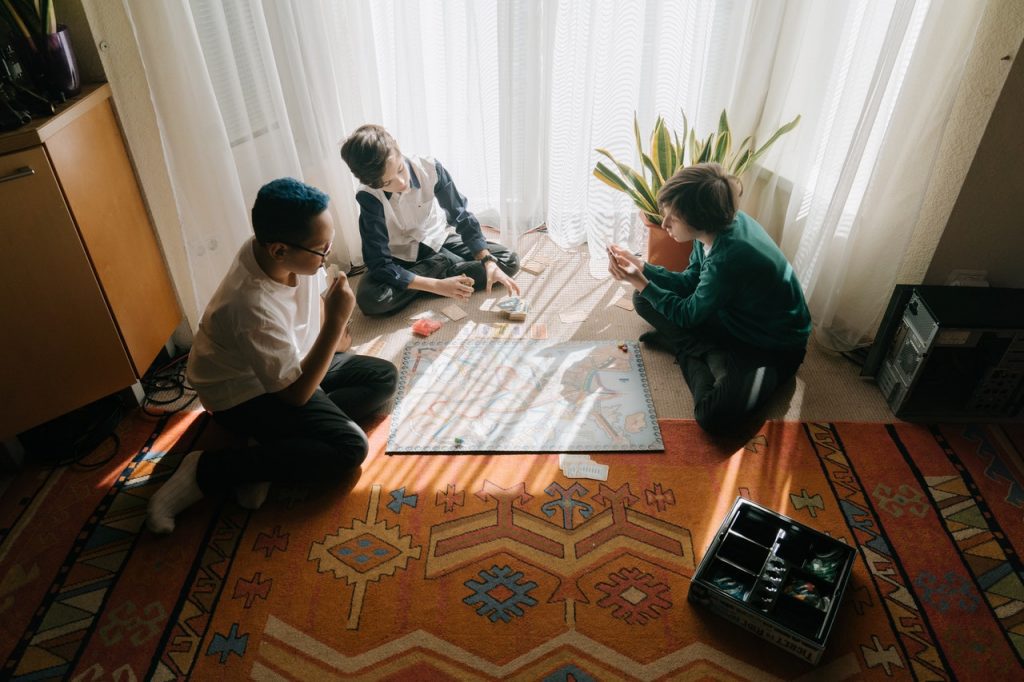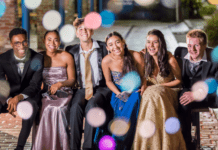“Why do some boys wear nail polish?”
I was driving my two little boys a few years ago, when my oldest son posed this question. Speechless (uncommon for me), I started sweating immediately. It’s been my goal from the beginning of parenthood to be honest with my kids, but it’s hard to know how honest to be, right?
I went in hard. I explained to him that our clothing and appearance are part of how we express who we are. There are certain things that we as a society have deemed feminine and masculine, and some people, most people actually, cannot fit entirely into the stereotypical mold, nor should they have to. After a lengthy explanation, I asked him, “Do you want to wear nail polish?” He said no, and then moved on to a question about Legos.
 This was one of the first of many hard conversations (arguably I wouldn’t consider it hard now, but I was new at this then). Since that day, we’ve had other hard conversations — about family members and pets dying, about fairness, and other topical issues.
This was one of the first of many hard conversations (arguably I wouldn’t consider it hard now, but I was new at this then). Since that day, we’ve had other hard conversations — about family members and pets dying, about fairness, and other topical issues.
In 2020 alone, we’ve taken the dive into so many topical issues that I would not have been prepared for. We’ve talked about sickness, death, politics, racism, and hatred to name a few.
I used to assume that I would tell my kids what they needed to know for their age while being honest; I think my simplistic view on the world is to blame for this. I want people to be good and try to use a moral compass of goodness to drive decisions. The world I want is not always the world we live in, nor is it the same for everyone. My kids are eight and nine, and the more I talk to them, the more I understand they are capable of (and thirsty for) knowledge far beyond what I would have thought they were capable of. So rather than give them bland explanations or worse, hiding things from them, we’ve jumped into some tough stuff, and they are surprising me at every turn.
Speaking of my simplistic view, they do really look at the world in a simple way — a childlike way that is full of what should be simple questions. Lots of simple questions with earnest eyes waiting for answers.
When I talked to them about Coronavirus, they asked what we can do to keep it from spreading and why people aren’t taking it seriously. We talked about how clean hands, social distancing and masks are the easiest ways to prevent the spread of the virus, yet people use their personal freedoms or comforts as an excuse.
When they overheard a political conversation where I was badmouthing certain politicians, they asked why I would say things like that when I tell them not to (yikes) and they asked what I thought about the issues. We talked about political parties, what is important to each one, and what I consider deal breaker issues.
When I told them about George Floyd, they asked about his family and why he was killed. We talked about the injustice and the fact that this happens more than it should (any is too often). We talked about the fact that it’s far less likely it would ever happen to them just because of the color of their skin.
When they saw Black Lives Matter signs, they wanted to know why this was still a fight when Martin Luther King Jr. had supposedly fixed the problem during the Civil Rights Movement. We talked about systemic racism and how we have long since viewed the Civil Rights Movement as good enough and an ending, not just a step in the right direction.
When we talked about Juneteenth, they wanted to know why it took so long for everyone to be free and what happened afterward. We talked about white washing history, oppression, and how this is still happening in our world. We talked about historical injustices that are often overlooked for a simple, patriarchal, white view of American history.
Their questions were simple, but our conversations were hard. I looked in their little eyes, heard their voices, and watched them process information. The truth is, it was hard but beautiful. These conversations modeled grace and curiosity in a way I wish adults knew how to use. They were laced with questions, understanding, and openness.
It occurred to me as I was talking to them and preparing for this post, why this is still relatively new to me. First, at ages eight and nine, they are more than capable of digesting information and have a better attention span. Second, I am their only source of information — they don’t watch the news or have as much interaction with school or friends right now. And third, I am more aware that I am able to choose to have these conversations. My privilege does not make all of these conversations a necessity for my sons to go out into the world. For me, it’s a necessity to raise kids with a broad worldview that does not shy away from hard things.
I still have a lot to learn. I have a lot to learn about pandemics, racism, politics, and history. I have a lot to learn about hard conversations, and as usual, it has started with my kids. I can learn from their simple questions, searching for earnest answers.
Not surprisingly, I don’t have the answer on what to say or how to do it. I don’t have the magic words that explain or solve anything we are currently facing as a nation or a city. My answer though is to do it anyway. So go ask the questions and have the tough conversations. Educate yourself and your kids about the world. Listen to what they say in response and explore where their thoughts come from. It may be easier to safeguard them, but it’s so much more rewarding to have kids who are growing to be better people through hard conversations.





















